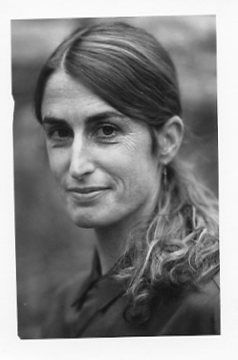
Maurice Sendak just died, at the age of 83.
Though I never knew him, the loss feels personal to me. Some of my happiest hours as a parent were spent reading books with my kids. For a time there I knew “In the Midnight Kitchen” by heart.
Sendak was a marvelous illustrator, but what set his work apart from most childrens’ books of his day was the way he confronted the terror, the vulnerability, the monstrous unfairness of childhood. Sendak infused his stories with humor and the courage of little people forced to survive in a world ruled by giants.
As this spring’s graduation season commences, attention will be focused on the bright young scholars heading out into the world while their once-giant parents are left behind with framed photos and video tapes. The story continues, the readers change.
In honor of Mr. Sendak, and all the writers and artists whose works give encouragement to parents and children alike, I offer here a column I wrote in the year 2000, when my oldest child graduated from college.
This column originally appeared in The Fauquier Citizen, a weekly newspaper in Warrenton, VA.
Make Way for Graduates
In the thickening dusk I could just make out the shape of something standing in the road ahead as I drove my younger daughter home from soccer practice recently.
Slowing to a crawl, I edged the car closer until the shape gained definition, feathers, wings — lots of wings. A pair of Canada geese was attempting to escort four baby geese across the perilous winding road to the pond on the other side.
I stopped the car. The geese gave us a measured look and carefully shepherded their goslings back to the grass while my daughter and I watched spellbound.
“It’s like “Make Way for Ducklings,” I said to my 13-year-old. She smiled, recalling one of the favorite books from our family’s read-aloud years.
In Robert McCloskey’s Caldecott Award-winning book, a pair of mallards go through the full cycle of the parenting process. They find a safe place to nest, hatch their eggs, teach their children how to swim, find food and avoid danger, and then, in the book’s climax, the proud parents lead their children to the park pond and launch them into their new lives.
Although written in 1941, the simple story still resonates with parents everywhere, because it deals with issues every parent experiences — the desire to keep children safe, to prepare them to live on their own and the excitement of watching them try those wings for the first time.
I couldn’t help thinking about Mr. and Mrs. Mallard last weekend as my husband and I watched our oldest daughter graduate from college.
To me, it seems like just last week she got her acceptance letter, a moment of high celebration. Now suddenly four years have disappeared, and it’s time to watch our daughter fly yet farther on her journey.
I promised myself I wouldn’t be too soppy about the whole thing. After all, we had a lot of practical work to do between the various graduation events. In addition to attending the celebratory garden party, brunches and dinners, we had agreed to help our daughter buy furniture and move into her new apartment during the weekend.
In one sense, this was good. We were so busy it didn’t leave time to get too mushy. But finally, after the popping of champagne corks dies down and the rustle of graduation gowns stills the murmur of the crowd, the moment of passage appears, clear and solemn despite all the euphoria.
There she goes, walking across the stage, smiling so wide, shaking the Dean’s hand, holding her diploma.
I’m reaching for my tissues, blowing my nose, fumbling for my camera. Even with 20 years of preparation for this moment, I still wasn’t ready.
During the long commencement ceremony more than 400 students received degrees of one kind or another. My husband and I, along with hundreds of other parents and well-wishers, sat on folding chairs outside the peaked white tent which looked like a meringue whipped to perfection under the clear blue skies. On the dappled lawn beyond the rows of chairs free spirits gamboled in the sun, unable to sit still for the long haul.
Most eye-catching were the toddlers and infants sporting fetching sunbonnets and straw hats. Doting parents and grandparents hovered around the small fry, applauding every new trick, every bright smile.
That’s what we do, parents. That’s our job. We watch the children grow, we teach them all we know, we applaud their efforts and their courage and try to help them pick up the pieces when things fall apart.
That’s why graduation is such a big deal for parents. Yes, we’re proud of our children. Yes, we’re happy for them. Yes, we’re grateful for them. But it’s more than that.
We’re also a little proud of ourselves, for somehow getting through all the obstacles, for enduring the years between 12 and 18, and for somehow managing not to fall apart in the process.
To be honest, a part of me envies the graduates who have their whole lives ahead of them. I envy their energy, their optimism, their can-do attitude. I remember how it felt to think that my generation would change the world, and in a good way. Now, of course, I think the world changed my generation as much as we changed it, and not necessarily all to the good.
But the battle goes on. We need fresh troops. And I’m encouraged by what I see in these graduates.
So cut them some slack, world. They’ve worked hard and they’ve learned a lot and they have some new ideas. They may not be able to fix all the problems we’ve left for them. But they’ll give it a good effort.
Make way for graduates.
